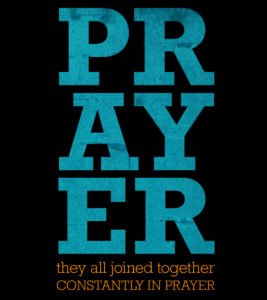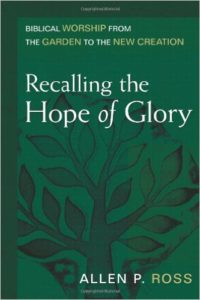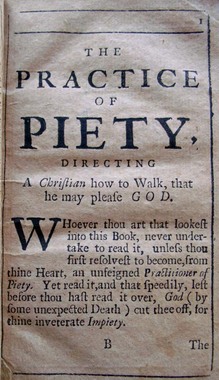
2016 will go down as the most surprising year of my life—so far.
Leicester City won the Premier League. Great Britain left the E.U. The Cubs broke Billy Goat’s Curse. Donald J. Trump was elected POTUS 45.
And I became a Presbyterian.
It Started a Long Time Ago
In 2001, I was a fledgling Major League Soccer player looking for a church to attend. I ended up at Park Cities Presbyterian Church on the suggestion of some extended family members. I loved the liturgy and meaty theological fellowship. But I found the baptism of infants altogether strange. Then I met David Rea (PCPC’s college minister and the RUF minister at SMU) and his intern Carlton Wynne. No two men, outside of my father and grandfather, have so decisively influenced my heart and mind. D-Rea and C-Man patiently took me under their wing, discipling me in Scripture and theology. In the process they made Presbyterianism’s distinctives plausible and logical—I just wasn’t yet convinced.
Eventually, I retired from soccer and became a Student Pastor at FBC Prosper. I didn’t have too much contact with David or Carlton for a few years. In God’s kindness, we’d soon reconnect.
I joined the pastoral staff at Providence Church in 2008. Soon I reunited with my Presbyterian brethren, catching up over Tex-Mex. I remember leaving that meal and thinking, “I want to be a pastor like those guys, yet I have so much to learn.” I was twenty-four, had no seminary education, little experience, and was the only pastor on staff (at the time) outside of the lead pastor. Responsibilities I’d never asked for just kept falling on my plate. Church members kept asking me questions I couldn’t answer. I didn’t have biblical convictions in areas where I knew I should. So, I emailed Carlton and said, “Would you be interested in regularly meeting with me to talk theology and ministry?”
He was up for the challenge. And so began several years of learning from an unusually gifted man of God. He convinced me to go to RTS and mentored me through a M.A.R. degree. With each passing year, I found subtle changes being made to my theology. I was becoming more and more Presbyterian—in a confessional sense. But I still wasn’t convinced about paedobaptism.
On Matters of Membership
In 2013, we planted IDC with an “open membership” practice.1 (I now wonder if that philosophy revealed more about my true baptismal convictions than I realized at the time.) God blessed the church in thousands of ways, right from the beginning. We had everything we’d dreamed of.
And then came 2015.
Last spring, some dear Baptist brothers initiated a conversation over open and closed membership. When they found out IDC was an open membership church, they began to poke and prod. “Jordan,” they’d ask, “if you believe infant baptism is valid for membership, then why aren’t you a paedobaptist?” Other logical questions confronted me. I proceeded then to do what I always have tried to do in matters of debate, pray more and read more.
When Everything Falls Apart
Over the next few months, I couldn’t stop studying the issue. I scoured Amazon for every relevant book on baptism and proceeded to devour it within days. No longer could I listen to audiobooks while running my 50-60 miles per week. Instead, I was listening to sermons, lectures, and debates on baptism. All the while I was increasingly terrified my view of baptism had switched. The very same arguments for paedobaptism I formerly took issue with, I now found my head bouncing in assent. I no longer agreed with the arguments I’d launched against Carlton for believer’s baptism.
I fully expected that my study would kick me out as a “closed membership” apologist. I came out of it, however, a fully convinced paedobaptist.2
God moves in mysterious ways, His wonders to perform.
Into the Fog We Go
A few months ago, we let our beloved congregation know about the change. I’m now helping IDC search for my replacement (words I never thought I’d write). I’m also searching for my next ministerial post (more words I never wanted to write).
The future is foggy, but we are heading into the mist with joyful trust in God’s sweet sovereignty.
If you think about it, say a prayer for IDC and the Stone family.
——————————————————————————
- “Open membership” means we didn’t require believing individuals who’d previously been baptized as an infant to be rebaptized by immersion. “Closed membership,” the historic Baptist practice, would require baptism by immersion to join the church.” ↩
- I’d already changed my mind on matters of church polity. Emily, my wife, joined me in the process and once said, “I think God made me to be Presbyterian!” ↩









 Ross’ final chapter in the book is, “Basic Principles for More Glorious Worship.” He writes, “The church . . . must always be discovering more meaningful and more glorious ways to worship God, for worship is essential to the spiritual life” (503). Now, if you read that statement out of context, your worship can get whacky real fast. Ross doesn’t mean for us to discover new ways of worshiping God wherever we want. He means for us to labor ad fontes—to return to God’s word to uncover more glory for our worship. He models this practice by giving fifteen final applications. I pray it will whet your spiritual appetite to devour this book.
Ross’ final chapter in the book is, “Basic Principles for More Glorious Worship.” He writes, “The church . . . must always be discovering more meaningful and more glorious ways to worship God, for worship is essential to the spiritual life” (503). Now, if you read that statement out of context, your worship can get whacky real fast. Ross doesn’t mean for us to discover new ways of worshiping God wherever we want. He means for us to labor ad fontes—to return to God’s word to uncover more glory for our worship. He models this practice by giving fifteen final applications. I pray it will whet your spiritual appetite to devour this book.



